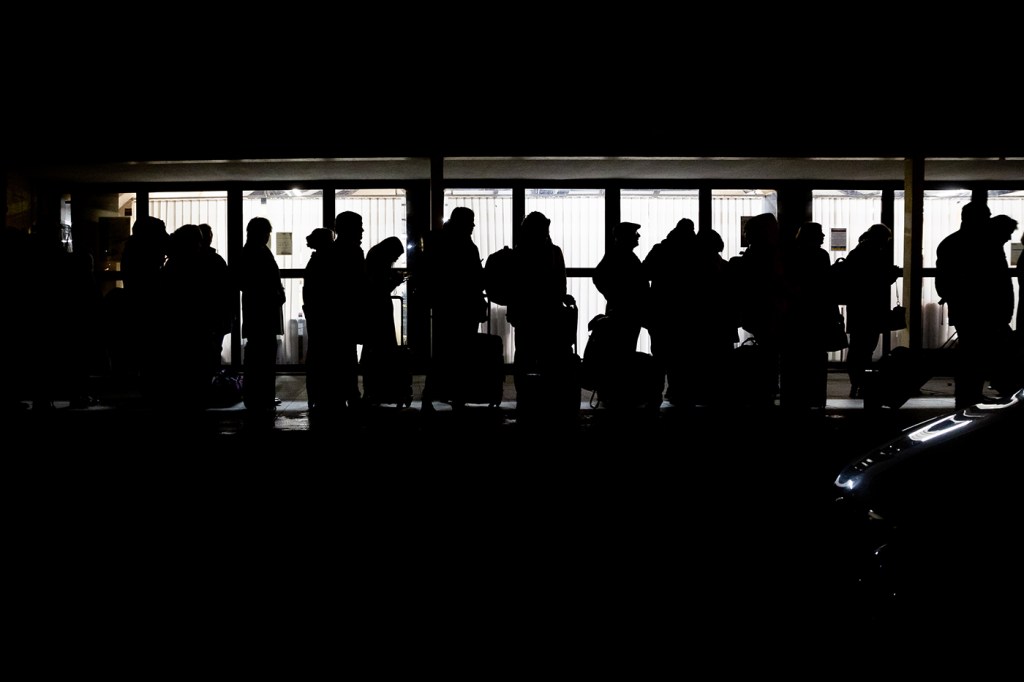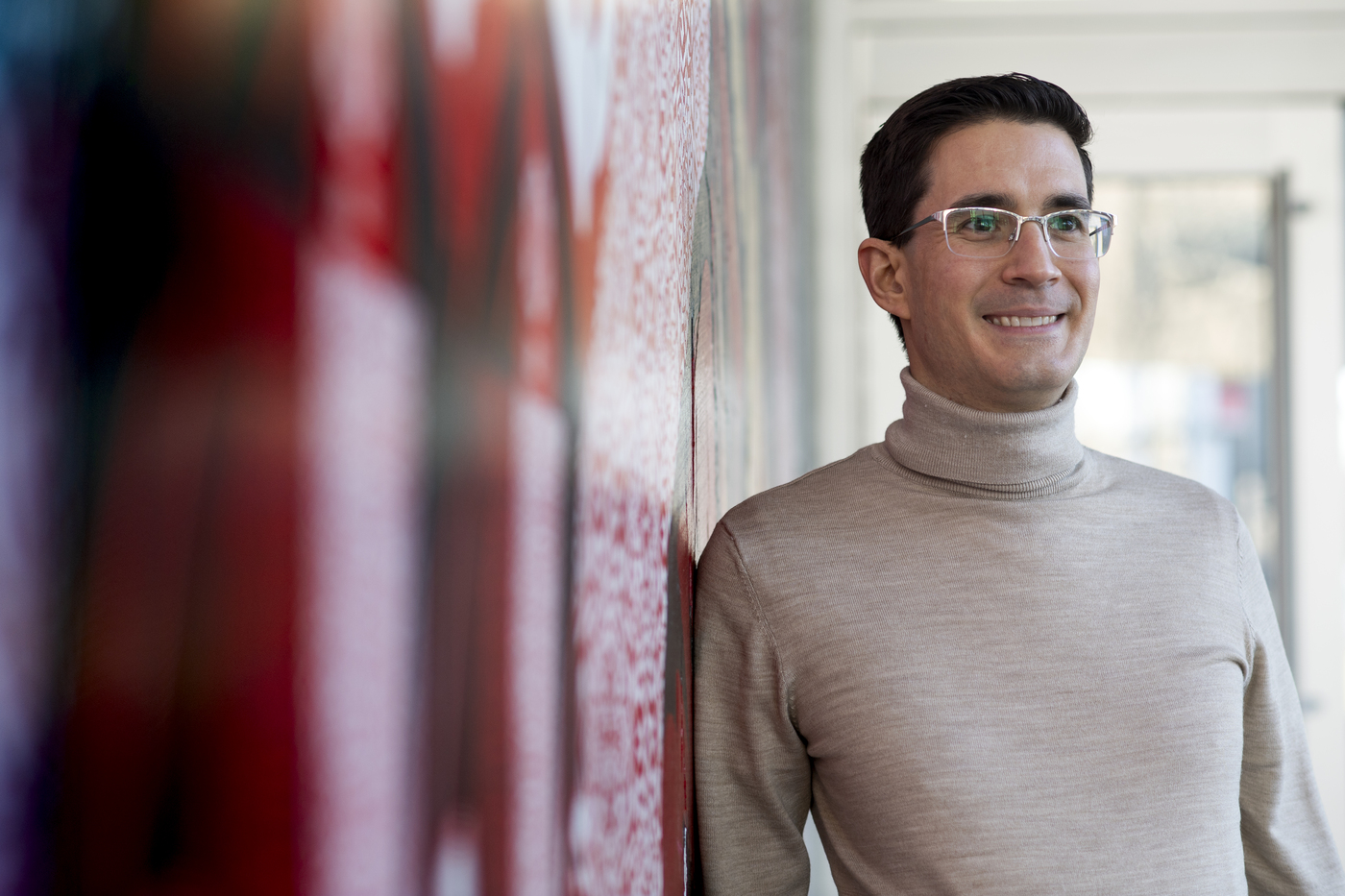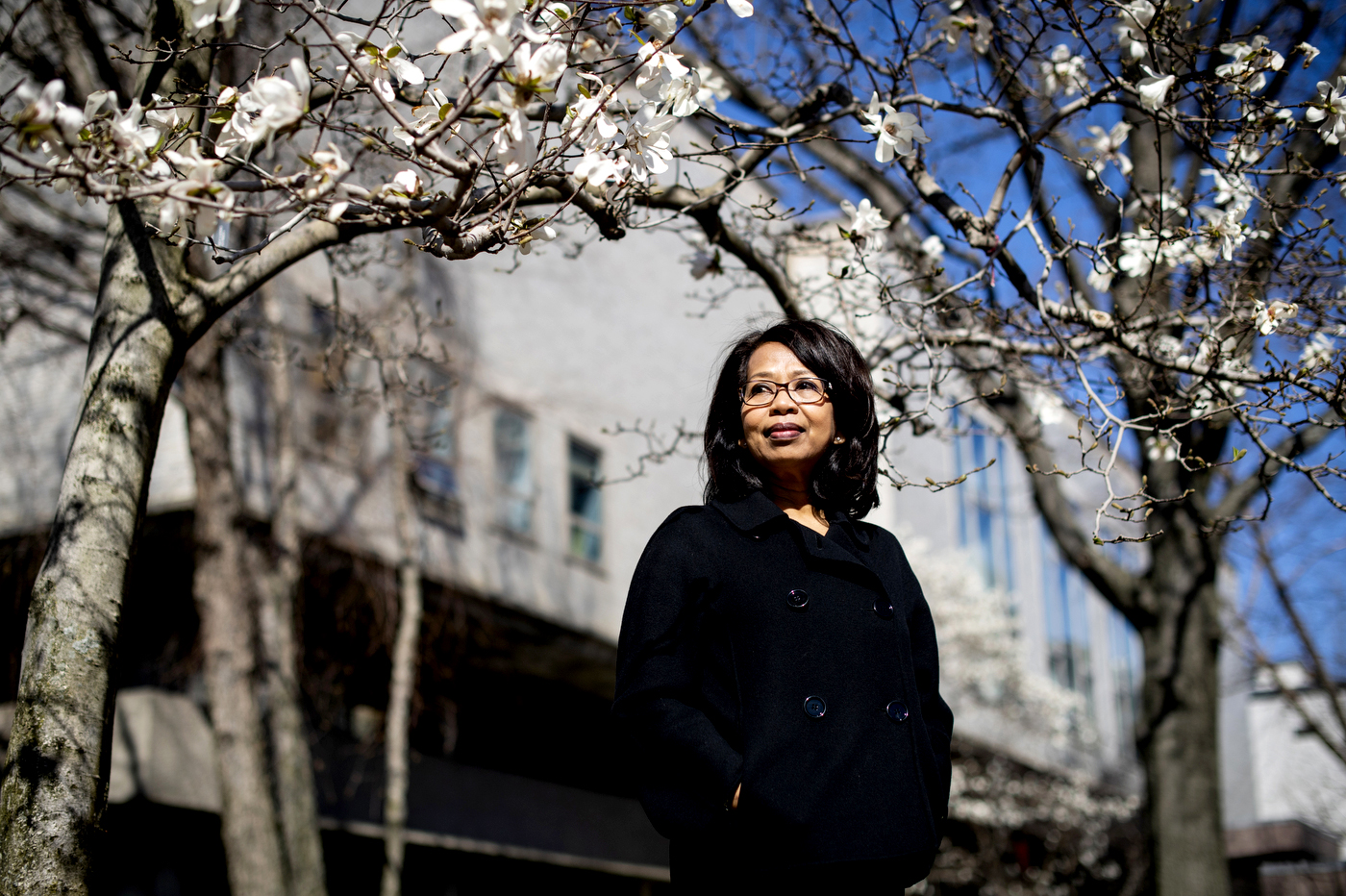At war’s end, will Ukrainian refugees come home–or thrive elsewhere?

This report is part of ongoing coverage of the Russia-Ukraine war. Visit our dedicated page for more on this topic.
More than 4 million refugees have fled Ukraine since Russian President Vladimir Putin ordered the invasion on Feb. 24, according to United Nations data. Whether they return—or thrive in their new countries—depends upon how quickly Ukraine can rebuild an economic engine, and how much support refugees receive in their resettled countries, say two Northeastern scholars.
“We’re in the middle of this conflict still, with no end in sight just yet. But we’ve seen enough of the migration patterns to know that this crisis will present challenges in dealing with short- and long-term consequences,” says Thomas Vicino, professor of political science at Northeastern.

Thomas J. Vicino, Professor and Associate Dean, College of Social Sciences and Humanities. Photo by Alyssa Stone/Northeastern University
Already, the war in Ukraine has created the largest flow of refugees in a single year since at least the end of the Cold War, according to reporting by The Economist. The vast majority of Ukrainian refugees who have fled their home country have resettled in other Eastern European countries, including Poland, Romania, Hungary, Moldova, Russia, Slovakia, and Belarus—a resettlement pattern that may prove beneficial to Ukraine when—and if—it begins to rebuild.
“We could presume that geographic proximity offers more of an impetus to jumpstart the economy” of Ukraine, Vicino says, adding that “any sort of strategy to attract displaced people back will need to focus on providing an economic path to prosperity.”
Refugees, whose lives have already been violently uprooted at least once, need to feel that they’re returning to a stable home, Vicino says. That means rebuilding urban centers so that people have a place to live, schools to send their children to, and steady work to rebuild their finances.
“The pressure to rebuild cities will be great, but it will need to happen in order to bring people back,” Vicino says.
Among the first industries to emerge in post-war Ukraine will need to be transportation, logistics, and construction, he says. Being able to move people from place to place, on roads and bridges that aren’t bombed out, is essential to rebuilding physical structures and other infrastructure.
At the same time, Ukraine may well face stiff competition with its neighbors for this migrant population—many of the countries that have accepted refugees are seeing their populations swell for the first time in decades. Except for a few brief periods, Poland’s population has been steadily declining since the 1960s, according to data from the World Bank. The same is true for Romania, Hungary, Moldova, and Slovakia. Belarus saw population gains at the turn of the century, but it’s been declining since 2015.
As a result, leaders of these countries may be more willing to incentivize refugees to stay in their new homes, Vicino says.

Annique Un, associate professor international business and strategy. Photo by Matthew Modoono/Northeastern University
“If you have a sudden influx of migrants, it creates a window of opportunity,” he says. “Policymakers will worry about assimilation and net job gain, but if refugees can integrate, and if the social conflict from migration can be mitigated, this could be a scenario in which countries respond in a very positive way, offering for migrants to stay.”
But if refugees do stay in their resettled countries, can they thrive there? To answer that, one might turn to C. Annique Un, whose research on the liabilities and advantages of what she calls “refugeeness” was recently published in the Journal of International Business Policy.
Un, an associate professor of international business and strategy at Northeastern, found that with the right support and mentoring, refugees can—and do—become innovative, highly productive contributors to their new economies.
“In the early days, when refugees arrive, they struggle because they weren’t prepared to move anywhere,” says Un, herself a Cambodian refugee. “After the initial years, and with the right support and mentoring, they thrive. Refugees, as a whole, are forced to be innovative and inventive,” qualities that are borne out in their work later on.
Indeed, anytime you enter a search on Google, chat with a friend on WhatsApp, or spice up your food with Sriracha chili sauce, you’re using an invention created by a refugee. As a group, refugees contribute billions of dollars to their local economies, and within five years of resettlement are more likely to be employed or become entrepreneurs than local nationals, Un says.
Refugees who are supported upon arrival within host families and their broader communities, and who receive mentoring from outside of their immediate communities tend to succeed best in their new countries, Un found. Mentoring, or local knowledge on how to navigate dense bureaucratic processes (known colloquially as “the system”), is especially important, she found.
Far from a liability, then, refugees are a largely untapped resource for their new economies and governments, Un says. She and her collaborators recommend that policymakers reconsider supporting refugee populations not just out of humanitarian responsibility, but as “strategic assets,” and invest in them as such.
“Refugees often don’t know local customs or systems; they don’t know how things work in their new countries,” Un says. “That knowhow, gained through mentoring, is crucial.”
For media inquiries, please contact Ed Gavaghan at e.gavaghan@northeastern.edu or 617-373-5718.





